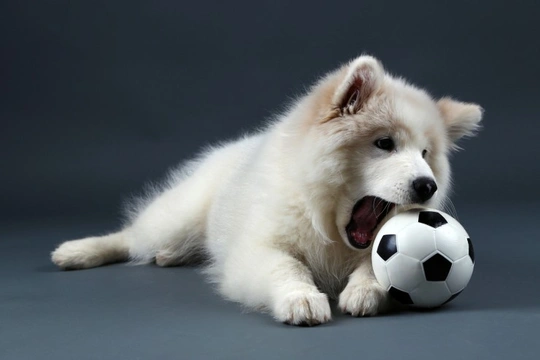
Raising a puppy with good chewing habits
Chewing is an instinctive and important part of puppy development, and this kicks into high gear while your puppy is teething and needs to cut their new teeth in to help them to break through the gums. This means that chewing is not something that you should seek to forbid or prevent in your puppy-this is both unfair and counterproductive-but you will of course want to ensure that they do not chew up everything in your home, and risk destroying your property or eating something unsuitable!
How you manage chewing while your dog is a puppy will go on to have an influence over their chewing habits for the rest of their life, and so it is important to get your puppy off to the right start in terms of the boundaries and permissions that they get used to when it comes to chewing.
In this article, we will look at the key elements of how to raise a puppy with good chewing habits, and how to avoid problems along the way. Read on to learn more.
Provide appropriate toys
First of all, it is vitally important to provide your pup with things that they will want to chew, and that will provide relief from teething for them. There are many toys on the market that are specifically designed to meet the needs of chewing dogs, and these are often made of rubber that can be bought in different shapes, sizes and densities to match different dogs, and so finding the one that suits your puppy best, and re-examining this as they get older, is important.
Keep other things out of reach
In order to protect your property and keep your dog safe, it is also important to keep other things that your pup might chew but shouldn’t well out of their reach, to remove temptation and keep them from getting the taste for something inappropriate! Exactly what your pup might target will depend on what is available to them and what suits their chewing needs, and so if your puppy seems particularly keen on one thing in particular, see what you can buy for them that will work as a substitute.
Substitute replacements
When your pup chews on something that they shouldn’t, take it from them and offer them a suitable substitute so that they do not get the impression that they should not be chewing at all.
However, don’t turn this into a tug or war, chase or fight for the item in question-teach your pup to surrender the toy to you without a fight, and then praise them, reward them with a treat, and give them an alternative that they can chew instead.
Over time, this will both teach your puppy about leaving things that are not their alone, and also, to surrender resources when they are told to do so.
Correct inappropriate chewing
If you do find your puppy chewing on something that they should not have, correct them immediately and take it away from them-do not allow them to have something one day and then take it away from them on another. This will be confusing and frustrating for your puppy, and will not do them any good in the long run.
Build positive associations with crate training
When your puppy is of an age to be chewing on anything they can get their teeth into, they are also likely to be getting used to the idea of crate training too, and learning to get used to being left alone sometimes without feeling anxious or making a fuss.
You can incorporate the use of chew toys into your pup’s crate training by keeping their chew toys in or near the crate, and offering them a special toy as a reward when they use the crate itself.
Putting a little bit of gravy or treat paste on such toys can further reinforce the use of toys as a reward, and that the crate is a place where they will get them.
Keep your puppy entertained
It is important that you do not use toys as a substitute for your own time and attention, and that you keep your puppy mentally occupied and entertained as well. While intensive chewing behaviour usually begins with teething, it often lingers long afterwards as a habit or form of entertainment, and this is fine-but a bored dog is likely to start chewing indiscriminately if their needs are not being fully met.
Provide plenty of exercise
Keeping your growing puppy fit and active with plenty of exercise can also help to curb potentially inappropriate chewing, by means of ensuring that your puppy is happy and fulfilled and not bored or frustrated. You should not exercise your puppy to the point of exhaustion of course, but keeping them active and building their fitness is important for a great many reasons.
Keep an eye on your pup’s teeth
Finally, keep an eye on your puppy’s teeth while they are teething, and if they appear to be having any problems breaking the gums or one or more of their teeth are not growing in correctly, let your vet have a look before it becomes pronounced.



